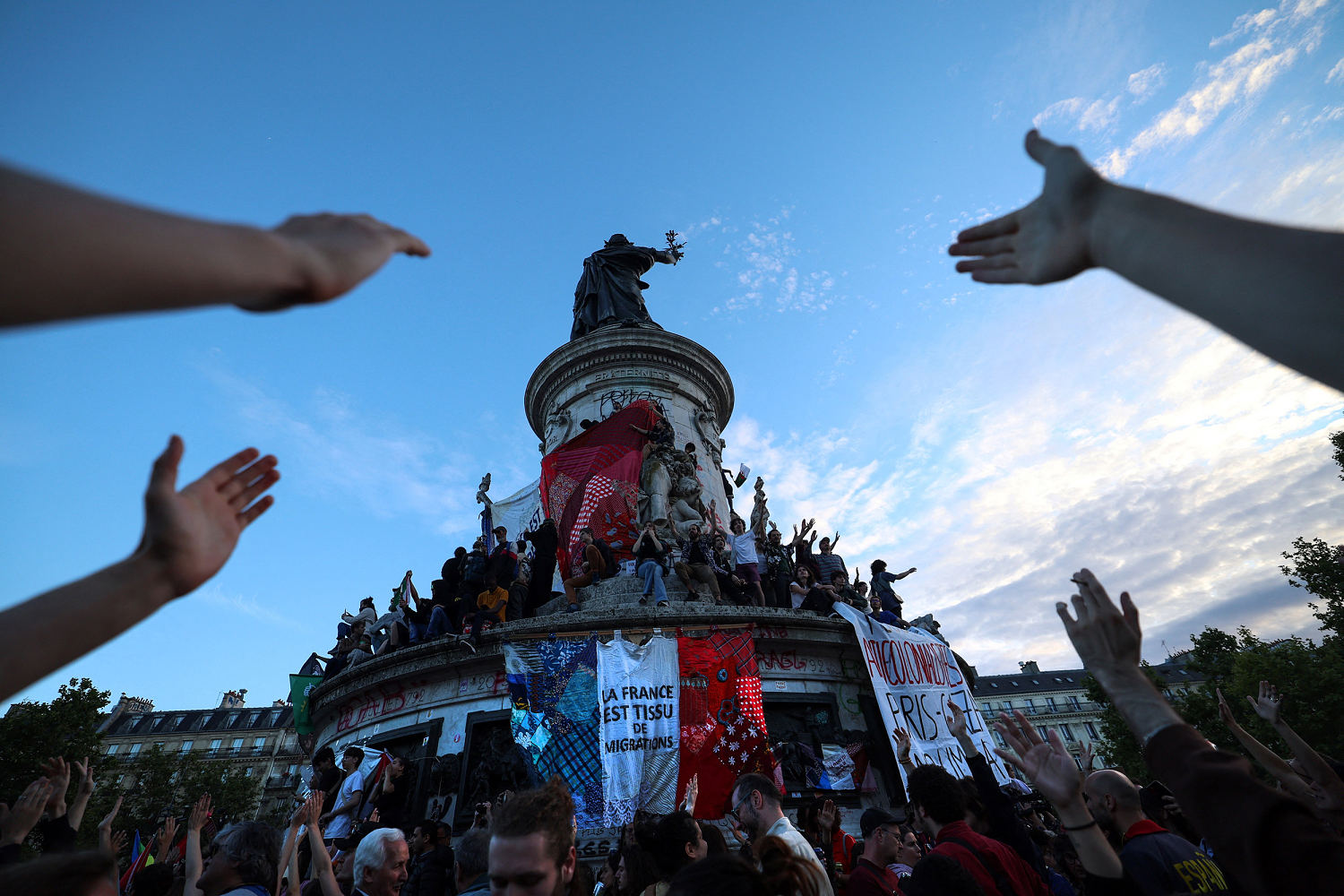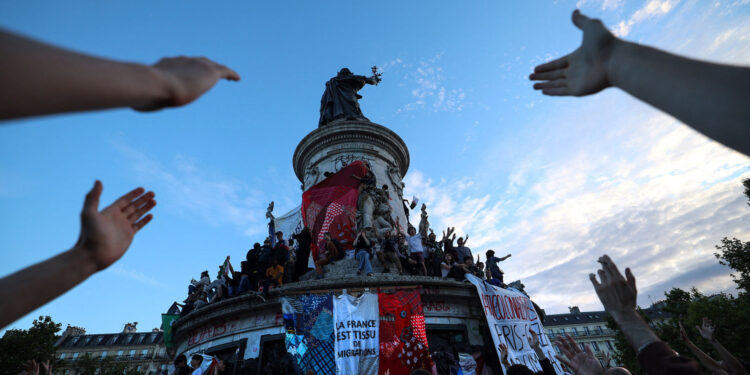
Macron has three years remaining on his presidential term.
In announcing his resignation, Attal made clearer than ever his disapproval of Macron’s shock decision to call the election, saying “I didn’t choose this dissolution” of the outgoing National Assembly, where the president’s centrist alliance used to be single biggest group, albeit without an absolute majority.
Rather than rallying behind Macron as he’d hoped, millions took the vote as an opportunity to vent anger about inflation, crime, immigration and other grievances — including his style of government.
The New Popular Front’s leaders immediately pushed Macron to give them the first chance to form a government and propose a prime minister. The faction pledges to roll back many of Macron’s headline reforms, embark on a costly program of public spending, and take a tougher line against Israel because of its war with Hamas. But it’s not clear, even among the left, who could lead the government without alienating crucial allies.
“We need someone who offers consensus,” said Olivier Faure, head of the Socialist Party, which joined the leftist coalition and was still sorting out how many seats it won on Monday.
Macron warns that the left’s economic program of many tens of billions of euros in public spending, partly financed by taxes on wealth and hikes for high earners, could be ruinous for France, already criticized by EU watchdogs for its debt.
A hung parliament is unknown territory for modern France.
Despite the uncertainty, supporters on the left cheered in Republique plaza in eastern Paris when the first results came in, with people spontaneously hugging strangers and several minutes of nonstop applause.
Marielle Castry, a medical secretary, was on the Metro in Paris when projected results were first announced.
“Everybody had their smartphones and were waiting for the results and then everybody was overjoyed,” said the 55-year-old. “I had been stressed out since June 9 and the European elections. … And now, I feel good. Relieved.”
The political agreement between the left and center to block the National Rally was largely successful. Many voters decided that keeping the far right from power was more important to them than anything else, backing its opponents in the runoff, even if they weren’t from the political camp they usually support.
“Disappointed, disappointed,” said far-right supporter Luc Doumont, 66. “Well, happy to see our progression, because for the past few years we’ve been doing better.”
National Rally leader Le Pen, who was expected to make a fourth run for the French presidency in 2027, said the elections laid the groundwork for “the victory of tomorrow.”
Racism and antisemitism marred the electoral campaign, along with Russian disinformation campaigns, and more than 50 candidates reported being physically attacked — highly unusual for France.
Unlike other countries in Europe that are more accustomed to coalition governments, France doesn’t have a tradition of lawmakers from rival political camps coming together to form a majority. France is also more centralized than many other European countries, with many more decisions made in Paris.







